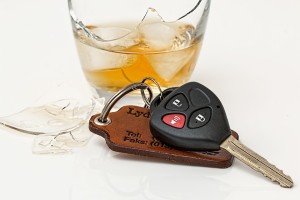 The installation of engine interlock devices on vehicles in Maryland has increased exponentially over the last decade, and they have been lauded as a highly effective means to reduce impaired driving. Currently though, there have been no realistic attempts by the state to make these devices mandatory in all vehicles. In fact, it would likely impossible for any state to require the use of these devices in vehicles. There are myriad reasons why a state such as Maryland would find it impractical or even unconstitutional to implement mandatory interlock or related programs. First, the state does not have the budget or the manpower to develop an enforceable program where drivers would be required to submit to an alcohol test before putting a vehicle in drive. Aftermarket alcohol testing devices are not especially reliable, and there would have to be someone on the government side to enforce the installation and maintenance of these devices. Requiring drivers to install and maintain these alcohol testing devices would create a major public outcry regarding the expense and the civil liberties implications. On top of all of these issues, instituting a statewide testing program would have an undue burden on interstate commerce, and likely lead to the years of legal challenges.
The installation of engine interlock devices on vehicles in Maryland has increased exponentially over the last decade, and they have been lauded as a highly effective means to reduce impaired driving. Currently though, there have been no realistic attempts by the state to make these devices mandatory in all vehicles. In fact, it would likely impossible for any state to require the use of these devices in vehicles. There are myriad reasons why a state such as Maryland would find it impractical or even unconstitutional to implement mandatory interlock or related programs. First, the state does not have the budget or the manpower to develop an enforceable program where drivers would be required to submit to an alcohol test before putting a vehicle in drive. Aftermarket alcohol testing devices are not especially reliable, and there would have to be someone on the government side to enforce the installation and maintenance of these devices. Requiring drivers to install and maintain these alcohol testing devices would create a major public outcry regarding the expense and the civil liberties implications. On top of all of these issues, instituting a statewide testing program would have an undue burden on interstate commerce, and likely lead to the years of legal challenges.
As a result of these implementation issues, the only realistic way to mandate devices that monitor a driver for intoxication is to require the auto manufacturers to install them in the factory. This may seem like a pipe dream, but decades ago it would have been hard to imagine that all cars new would have seatbelt monitoring systems and airbags. The NHTSA is the administrative agency that sets the safety requirements for vehicles being sold in the United States, and they take recommendations from the NTSB. The NTSB has made lobbying for alcohol devices a priority since 2012, and has continued to recommend new cars be manufactured with them. Passive alcohol testing devices monitor drivers for signs of impairment such as swerving, drifting and even facial expressions and movements. They are called passive devices because the driver does not actually do anything to activate the device such as blowing into a tube on an interlock device. Passive devices are always functioning while the car is in operation, and have been researched by multiple auto manufacturers since 2008. The technology currently exists to detect signs of impairment in drivers, but they are not be perfect and could likely be disabled by a mechanic if the owner was so inclined. The mandate would only apply to newly manufactured vehicles based on the aforementioned difficulty and expense in installing after-market devices; it could pass muster in a civil liberties argument because the burden will be placed on auto manufacturers and not individual citizens. The government would not be forcing individuals to be tested for impairment while driving, but rather saying if anyone wants to buy a new car, they will have to deal with the devices.
Nearly 43,000 people were killed on roads in the United States last year, and this alarming number continues to rise. Roughly one quarter of these deaths are alcohol related, and the government believes each and every one of these are preventable. As the technology continues to improve, the pressure will mount on the NHTSA to act. Therefore, it is highly likely that within the next five years all new cars sold in the United States will have some sort of passive intoxication monitoring system. The Blog will continue to follow this story and may post a follow up article in the future. If you have a question about a DUI case, an MVA license suspension or the interlock device program feel free to call Maryland DUI lawyer Benjamin Herbst anytime for a free consultation. Benjamin is an experienced criminal defense lawyer who specializes in traffic violations such as leaving the scene of an accident, fleeing or eluding, driving on suspended license and all drunk driving related matters. He can also fight to have your bench warrant or arrest warrant recalled if you have missed court or violated your probation. Call Benjamin anytime at 410-207-2598.
Resources:
The NTSB wants all new vehicles to check drivers for alcohol use, npr.org.
 Criminal Defense Lawyer Blog
Criminal Defense Lawyer Blog

